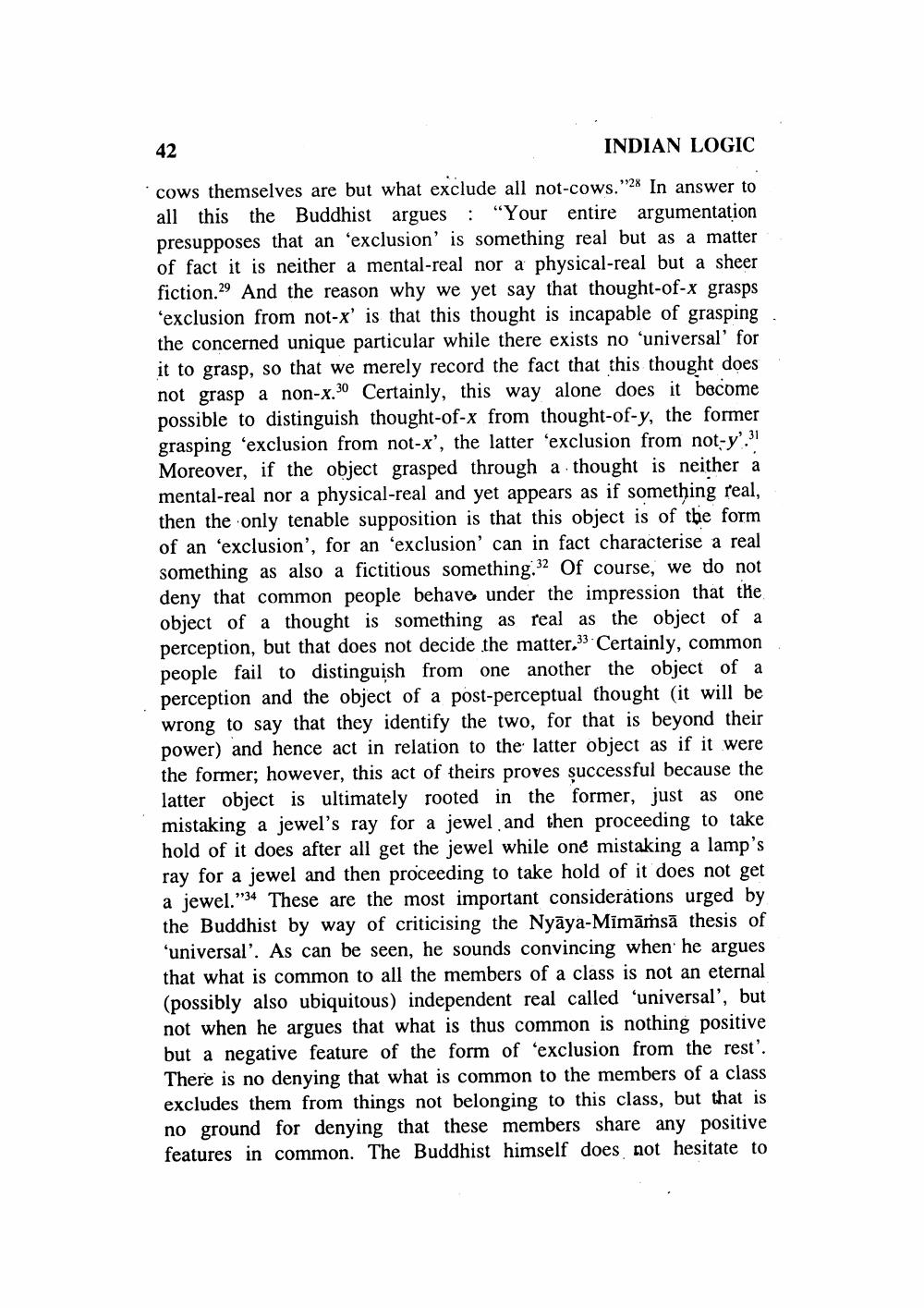________________
INDIAN LOGIC
cows themselves are but what exclude all not-cows."28 In answer to all this the Buddhist argues : "Your entire argumentation presupposes that an exclusion' is something real but as a matter of fact it is neither a mental-real nor a physical-real but a sheer fiction.29 And the reason why we yet say that thought-of-x grasps 'exclusion from not-x' is that this thought is incapable of grasping the concerned unique particular while there exists no 'universal' for it to grasp, so that we merely record the fact that this thought does not grasp a non-x.30 Certainly, this way alone does it become possible to distinguish thought-of-x from thought-of-y, the former grasping 'exclusion from not-x', the latter 'exclusion from not-y'.31 Moreover, if the object grasped through a thought is neither a mental-real nor a physical-real and yet appears as if something real, then the only tenable supposition is that this object is of the form of an 'exclusion', for an exclusion' can in fact characterise a real something as also a fictitious something: 32 Of course, we do not deny that common people behave under the impression that the object of a thought is something as real as the object of a perception, but that does not decide the matter,33. Certainly, common people fail to distinguish from one another the object of a perception and the object of a post-perceptual thought it will be wrong to say that they identify the two, for that is beyond their power) and hence act in relation to the latter object as if it were the former; however, this act of theirs proves successful because the latter object is ultimately rooted in the former, just as one mistaking a jewel's ray for a jewel and then proceeding to take hold of it does after all get the jewel while one mistaking a lamp's ray for a jewel and then proceeding to take hold of it does not get a jewel."34 These are the most important considerations urged by the Buddhist by way of criticising the Nyāya-Mīmāṁsā thesis of 'universal'. As can be seen, he sounds convincing when he argues that what is common to all the members of a class is not an eternal (possibly also ubiquitous) independent real called 'universal', but not when he argues that what is thus common is nothing positive but a negative feature of the form of 'exclusion from the rest'. There is no denying that what is common to the members of a class excludes them from things not belonging to this class, but that is no ground for denying that these members share any positive features in common. The Buddhist himself does not hesitate to




